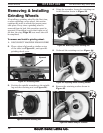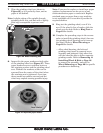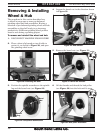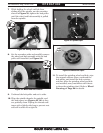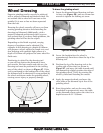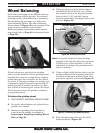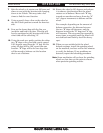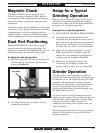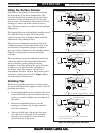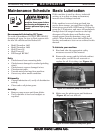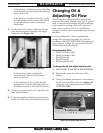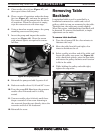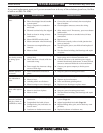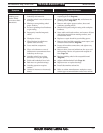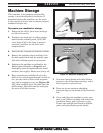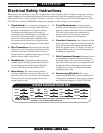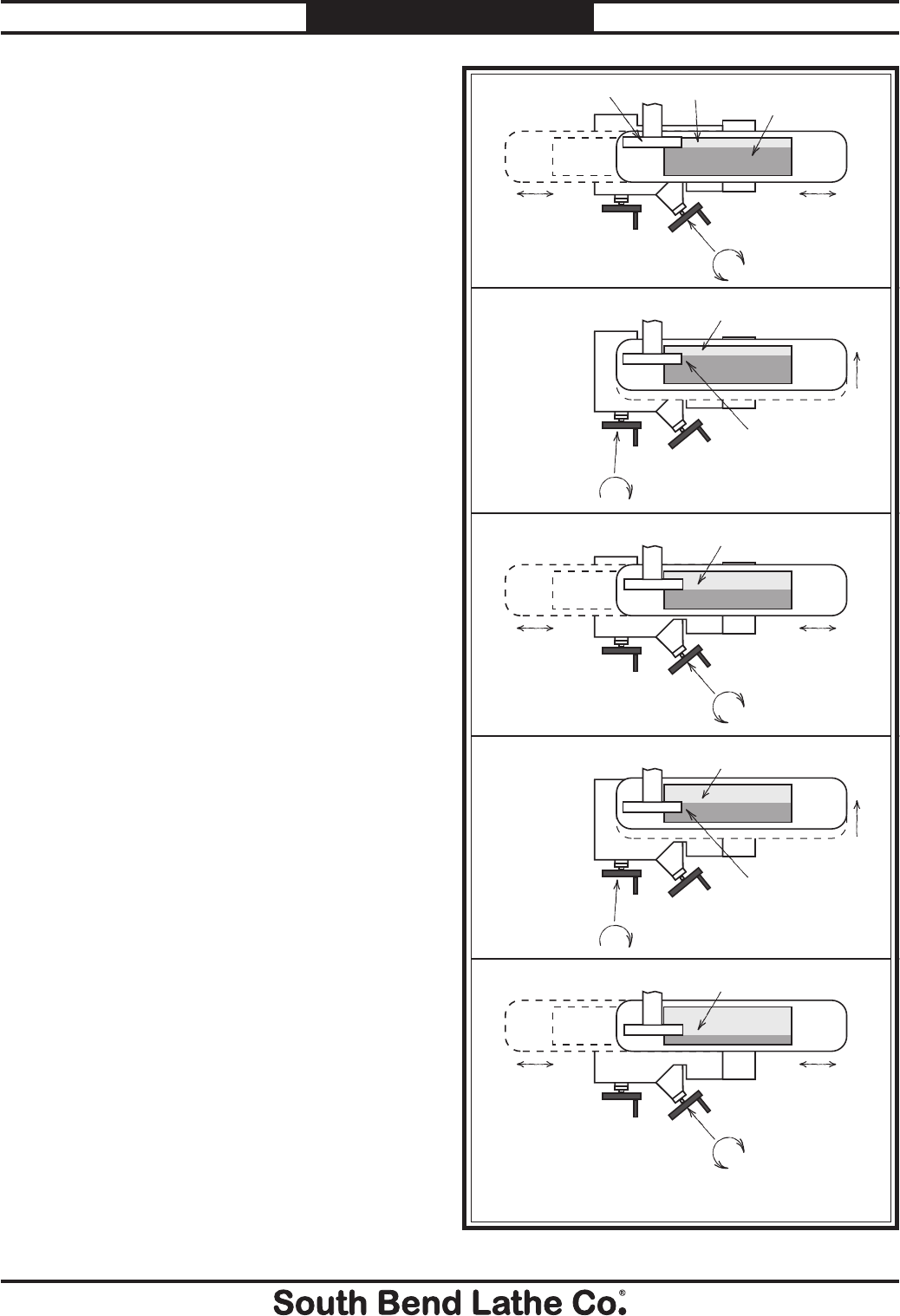
-32-
For Machines Mfg. Since 8/09
Model SB1029
OPERATION
Figure 43. Grinding process illustrated.
Workpiece
Surfaced Portion
Grinding Wheel
Surfaced Portion
Surfaced Portion
New Portion
Exposed
*Movement exaggerated for clarity
*Movement exaggerated for clarity
Continue/repeat as necessary until desired
results are achieved.
Surfaced Portion
New Portion
Exposed
Surfaced Portion
Using the Surface Grinder
Operation of the grinder is controlled through
the movement of the three handwheels. The
elevation handwheel controls the up and down
movement of the grinding head. It is this axis
that governs the amount of stock removal. Never
attempt to remove too much material in one
pass. The best results are achieved with multiple
light passes.
The longitudinal travel handwheel rapidly moves
the table from left to right. This allows the
operator to move the workpiece back and forth
underneath the grinding wheel.
The cross travel handwheel controls the front-
to-back movement of the table and is only to be
used between longitudinal passes to expose a
new area of the workpiece to the grinding wheel.
Slightly overlap passes to ensure complete
coverage.
When grinding, sweep the table back and forth
under the wheel in the longitudinal direction
until no further sparks emerge from the
workpiece, move the table in the cross direction
to expose a new portion of the workpiece to
the wheel, then take another sweep in the
longitudinal direction. Repeat this process until
the entire surface is ground. See Figure 43 for
an illustration of this process.
Grinding Tips
While every grinding operation is unique, there
are a few techniques that apply to most, if not all
grinding operations.
s $URINGLONGITUDINALPASSESTIGHTENTHECROSS
travel lock knob to prevent chatter that may
occur as a result of slight cross movement of
the table.
s "ETWEENLONGITUDINALPASSESUSETHE
squeegee to remove any foreign material
from the workpiece.
s !FTERANINITIALPASSADJUSTTHEDUSTPORT
to be directly in the path of the sparks to
minimize the amount of waste material
ejected into the work space.



